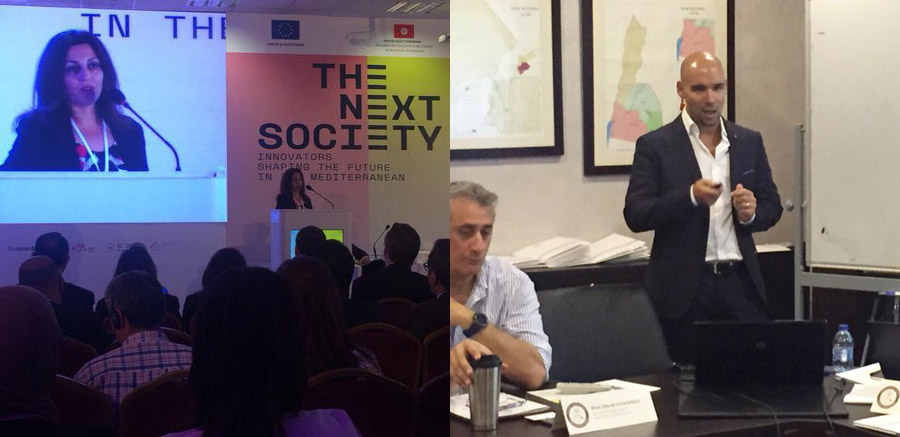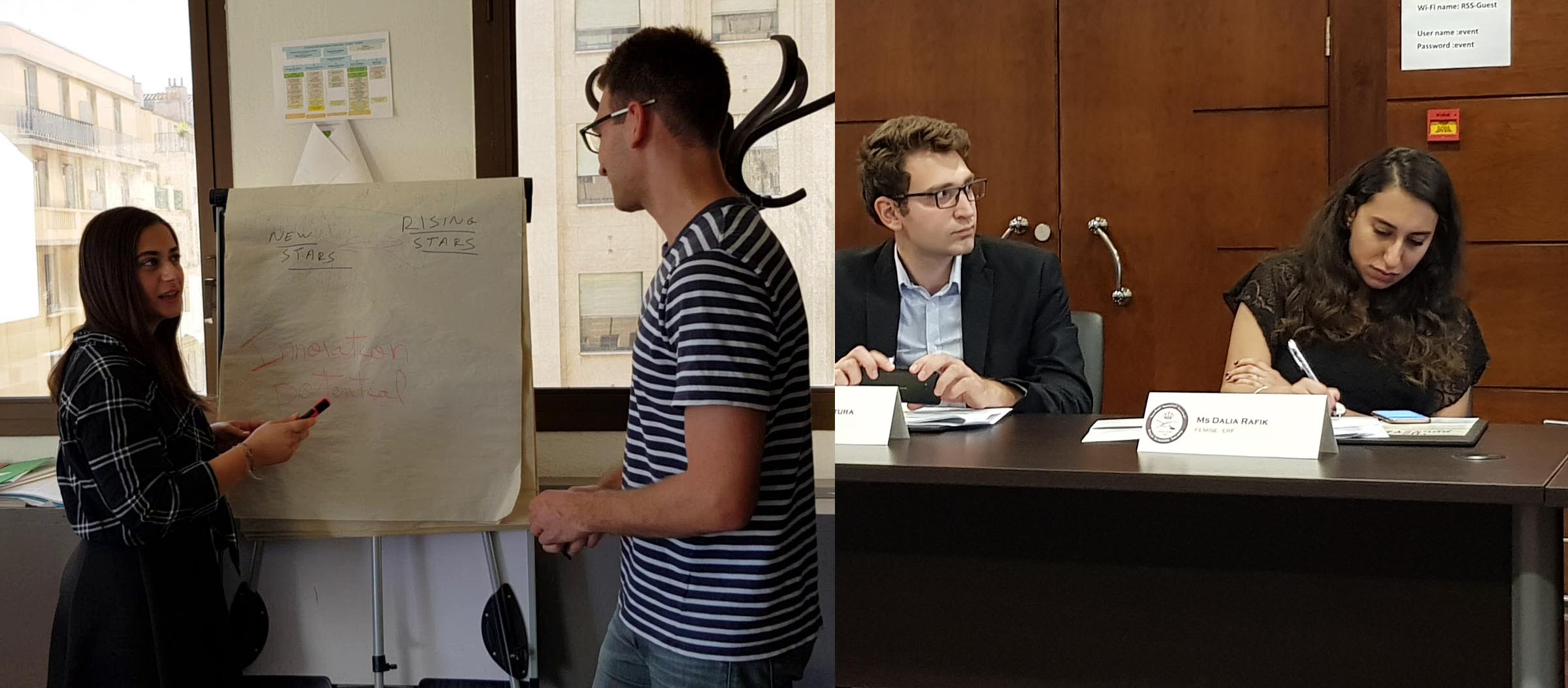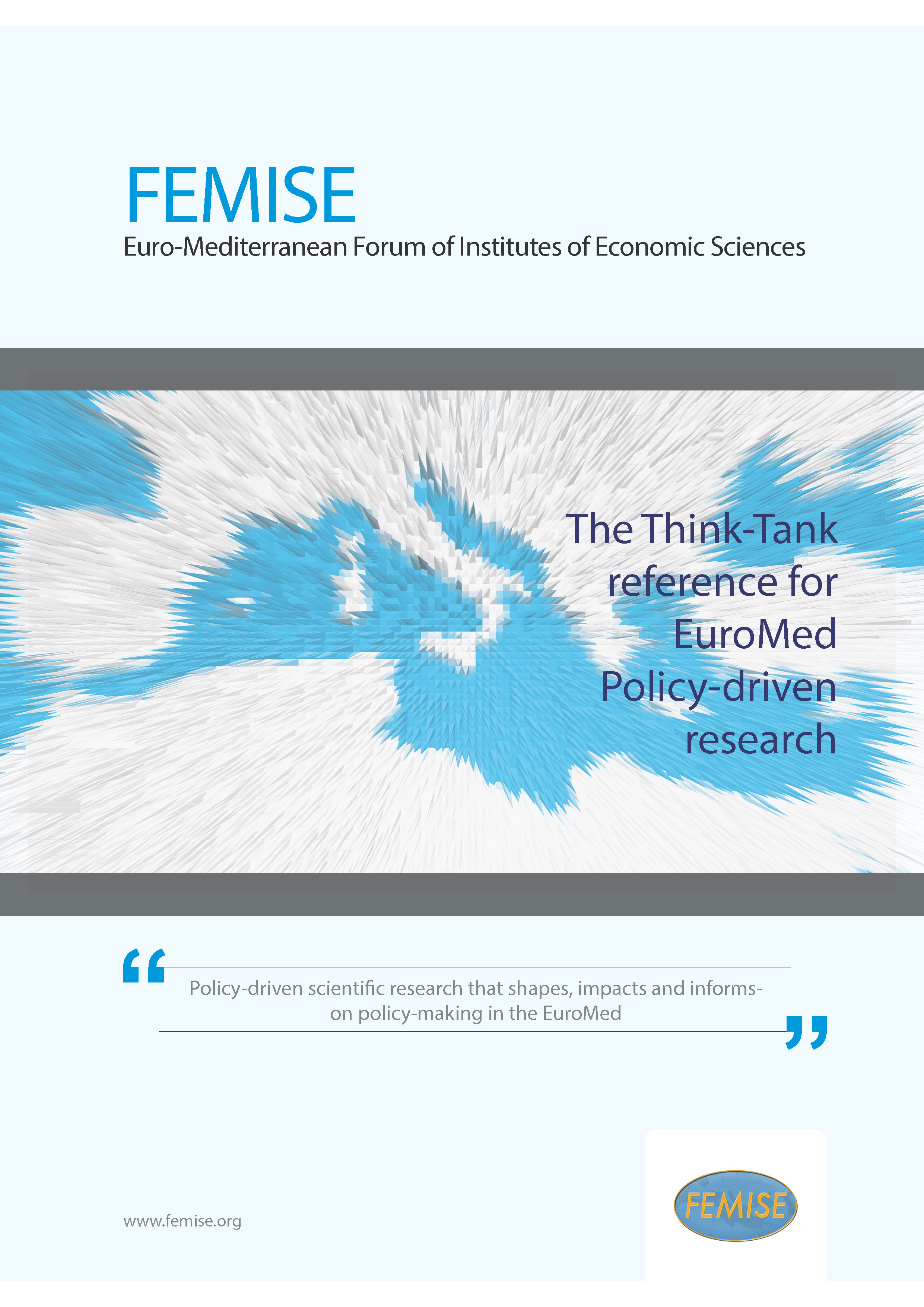Mediterranean countries suffer from a lack of dynamism of their private sector, which is not sufficiently competitive nor job-creating.
Therefore, FEMISE has placed the theme of the private sector, and in particular its role as an engine of growth, job creation and inclusivity, at the center of its research activities. A special attention is paid to the causes that prevent the sector from reaching its potential, in particular the constraints faced by firms in the Southern Mediterranean Region, and to the importance of innovation in the development of the Mediterranean private sector.
One of the specificities of the FEMISE network, coordinated by the Economic Research Forum (ERF) and Institut de la Méditerranée (IM), is to always strive to integrate the points of view of politicians, of private operators and, more broadly, of all local actors, in the discussions carried out under this theme. This approach provides better feedback on the research, and ensures its policy relevance.
The private sector at the center of the FEMISE academic research

Patricia AUGIER (Scientific Pres. of Institut de la Méditerranée, Coordinator and Scientific Pres. of FEMISE), coordinates the 2018 EuroMed report
Firstly, the 2018 FEMISE EuroMed report, the flagship publication of the network, will focus on the private sector in the Mediterranean countries. The objective of the report will be to take stock of the economic dynamics of the Mediterranean countries over the last 20 years (ie since the Barcelona Process), and to understand the blocking points. The general idea is that growth in Mediterranean countries must accelerate to absorb a growing number of incoming individuals in the labor market, and that this growth must be based on productivity gains rather than on factors accumulation : the development of the private sector is therefore at the heart of the definition of a new development model. One of the chapters will focus more specifically on the role of central banks in private sector development. Finally, the major concern of a more inclusive growth will lead us to consider social entrepreneurship as a potential opportunity for the Mediterranean countries.
A “Science for Business” partnership dynamic with technical and operational support actors
Secondly, FEMISE participates, in partnership with ANIMA, in THE NEXT SOCIETY project, which brings together public and private actors from 7 Mediterranean countries with the aim of supporting innovation ecosystems. This collaboration gives the opportunity to FEMISE and ANIMA to pool their complementary skills, which are analysis and production of academic knowledge on the one hand, and technical and operational support on the other hand.
FEMISE’s contribution is firstly to draw-up a scoreboard and analyze the position of each country in terms of innovation and competitiveness indicators, such as the Global Innovation Index, at different stages of innovation (inputs, process and outputs). FEMISE also carries out an analysis of the national innovation strategies and of the ecosystem of involved actors (government, associations, private operators…).
Next, FEMISE identifies high-performing sectors and products to highlight new national comparative advantages and investment opportunities.

Dr. Maryse LOUIS (General Manager FEMISE, Programs Manager ERF) and Dr. Constantin TSAKAS (General Manager Institut de la Méditerranée, General Secretary FEMISE) presenting FEMISE research at THE NEXT SOCIETY panels in Tunisia and Jordan.
FEMISE presents its findings on the occasion of advocacy panels bringing together academics, entrepreneurs, investors, managers of incubators and innovation structures and public actors. This allows to benefit from their feedback and, above all, from their point of view regarding the factors that led to the emergence of these new comparative advantages. This approach ensures that the findings and recommendations from FEMISE work can contribute to elaborate public policies. The challenge of these panels is to establish, for each country, a roadmap for innovation, from implementation to evaluation, with the objectives of strengthening national innovation systems, fostering coordination between stakeholders, and improving the instruments of innovation policies and strategies.
An opening towards South-Mediterranean institutions in a “Science for Policy” approach

Les jeunes chercheurs du FEMISE participent activement aux recherches, Karine MOUKADDEM et Jocelyn VENTURA (Institut de la Méditerranée, FEMISE) et Dalia RAFIK (ERF, FEMISE)
Thirdly, FEMISE is opening-up by cooperating with South Mediterranean actors and institutions directly concerned by these issues. Therefore, FEMISE co-authored and will publish in 2019 the2019 EuroMed report which will identify the constraints to growth and integration in the global value chains of Moroccan SMEs. This document results from the cooperation of the network with the African Development Bank, a main regional funder for development aid, and with the Institut supérieur de commerce et de gestion d’administration des entreprises (ISCAE) established in Morocco.
It is essential for the Mediterranean countries to better integrate SMEs into the global value chains in which most international trade takes place. In this report, we have chosen to focus on the case of Moroccan firms. It will be based on surveys and field interviews of SME managers and representatives of professional associations as well as on the Enterprise Surveys and Doing Business indicators of the World Bank. It is in this approach of discussions between researchers and public and private operators that the preliminary results of the report were presented before publication, in order to gather comments, suggestions and recommendations to enrich the research.
A triple anchoring to obtain research that is relevant from a political and operational dimension
To conclude, in addition to the ongoing academic research conducted by network members and supported financially by FEMISE funds (research available on the website), 3 other types of work devoted to the private sector are currently mobilizing the FEMISE team: (1) an analysis of the situation and a general discussion covering the entire region (EuroMed2018 Report), (2) a targeted and co-authored thematic analysis with a national focus (EuroMed2019 Report) and (3) a project on innovation in partnership with ANIMA.
Our analysis feeds on both (i) the knowledge and contributions of academic research, (ii) the consideration of concrete situations within the countries, as well as (iii) the points of view and insights from politicians and business actors. This triple anchoring allows us to develop products that are relevant from a political and operational dimension.
To get the FEMISE Brochure, with a presentation of the activities of the network and its new thematic approaches please click here.
To find out more about the preliminary findings of the report co-led with the AfDB, some answers are available in the interview below:
Article written by Jocelyn Ventura (Economist Institut de la Méditerranée)



